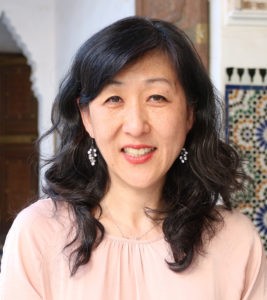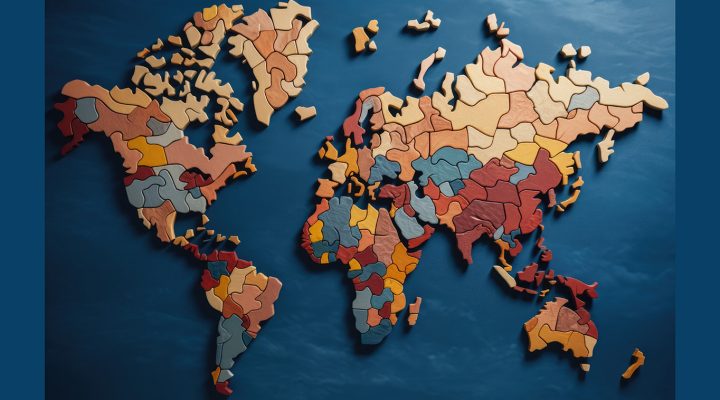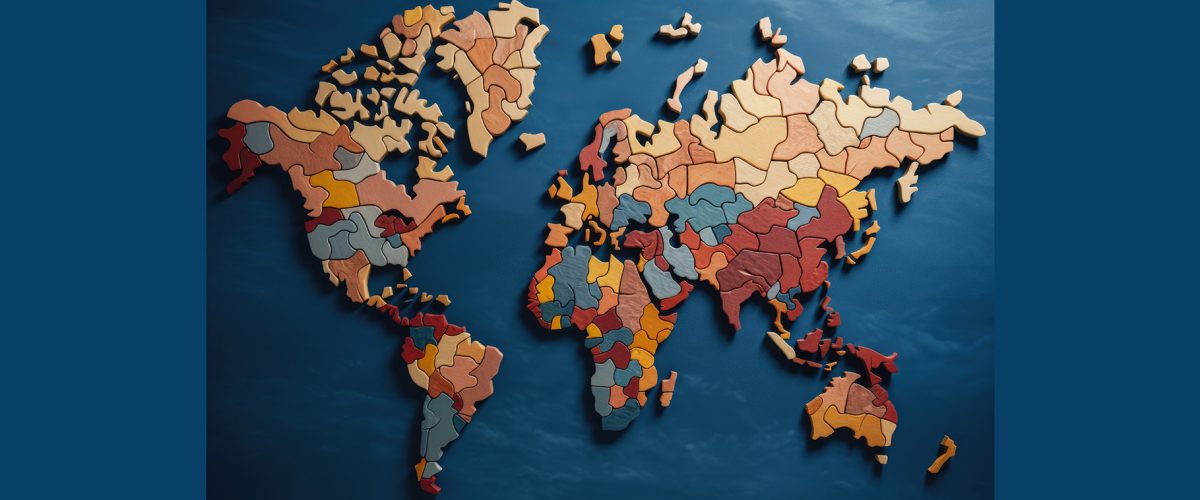I participated in one of the most beautiful and powerful conferences, “Land, People and Culture,” held at Dar al-Kalima University in Palestine, organized by Mitri Raheb.
It was a transformative conference for me in so many ways as I got a first-hand look at what is actually happening in Palestine under settler colonialism. Even though the Palestinians are suffering under occupation, I was able to experience their extraordinary hospitality, warmth and care. A day after I landed in Palestine, I fell on a pile of rocks and broke my knee cap. The kindness of strangers and the thoughtfulness of Palestinians really warmed my heart, and it is something I will carry with me for the rest of my life.

Grace Ji-Sun Kim
Less than two days after I returned home from this important conference, the air strikes began on Oct. 7.
As a mother, I am unable to fathom the amount of grief, agony and misery these Palestinian parents are facing, seeing their children and loved ones being murdered, mutilated and being covered by the rubble. With the death toll over 10,000 in Gaza, we watch in disbelief that it can happen right before our eyes while the Western leaders ignore the large global marches protesting the war and demanding a ceasefire.
I ask myself every day, “Where is our humanity and why are we unable to stop this destruction of Gaza and the killing of innocent children and civilians?”
Cultural critic Edward Said wrote his book Orientalism in 1978. In this notable book, Said argued the West continuously depicts and portrays the East, the Orient (Asia, North Africa and Middle East) as static and undeveloped while the West is rational and superior. As a result, the West sees the Eastern cultures as a major threat to the West. Therefore, there is a large need for the West to colonize the East. Today we see this happening in different parts of Asia.
“The West continuously depicts and portrays the East, the Orient (Asia, North Africa and Middle East) as static and undeveloped while the West is rational and superior.”
The Nakba known as the Palestinian catastrophe happened in 1948 as the West supported the creation of Israel. As a result, there was a Palestinian expulsion and flight as Palestinians lost their homeland and were permanently displaced. It is estimated that 800,000 Palestinians were expelled from their land, their homes and their farmland by armed Jewish groups. Between 400 and 600 Palestinian villages were destroyed, and it became a geographical erasure of Palestinians. The Nakba also resulted in a large number of Palestinian refugees who settled in camps in neighboring states.
We must also note that people in other places around the world were displaced around the same time that the Nakba occurred in Palestine. In 1948, Korea was divided into north and south by the Soviet Union and the United States. The two superpowers decided to separate Korea along the 38th parallel, and it remains the only divided country in the world. Families and friends have been torn apart since 1948 as you cannot cross the border that is marked off by the Demilitarized Zone.
Additionally in 1947, the partition of India into India and Pakistan was done by the British. This partition resulted in 12 million refugees who crossed new national borders drawn up by the British based on religious affiliation, with the Muslims in Pakistan and Hindus in India. This division of India resulted in the death of about 2 million people and around 80,000 women were abducted.
These divisions and displacement of peoples living in the East were carried out by the Western imperial powers who viewed the Orient as less advanced, subordinate and weak. As a result, the Western imperial powers have caused divisions, death and insurmountable agony, distress and anguish to millions of people.
Edward Said’s analysis of the West’s perception of the East is helpful in understanding how the West goes into Asia to divide and conquer. This in part explains why many Western political leaders are so silent about the rising death toll of innocent civilians in Gaza.
“This in part explains why many Western political leaders are so silent about the rising death toll of innocent civilians in Gaza.”
As we mourn the murdering of innocent children and people in Gaza, we as Christians ask, what is our role in this time of humanitarian crisis? What are we to do about the dehumanization and destruction of a people?
Jesus commanded that we keep two commandments, love God and love your neighbor (Matthew 22:36-40). Christians often find it easy to love God. We go to church and worship, pray, praise and read the Bible. It is loving our neighbors that we find hard to do.
We often don’t see those who are so different from us as children of God. It becomes very difficult and hard to embrace the other. But in this moment, we must do exactly that. Loving God means loving our neighbors, and loving our neighbors means we are loving God. They are two sides of the same coin.
During this global crisis, we need to embrace and love Palestinians who are created in the image of God. We are all children of God, and no one is inferior to another as we are all created equal in the eyes of God.
We must demand a ceasefire and bring an end to the killing of innocent Palestinians. If we reflect on the life of Jesus, we recognize that Jesus was a Palestinian Jew. Jesus said to us, “Whatever you did to the least of my brothers and sisters, you did it to me.”
Grace Ji-Sun Kim serves as professor of theology at Earlham School of Religion in Richmond, Ind., and earned a Ph.D. from the University of Toronto. She is an ordained minister in the Presbyterian Church (USA) and the author or editor of 22 books. She is the host of Madang podcast on Christian Century.


